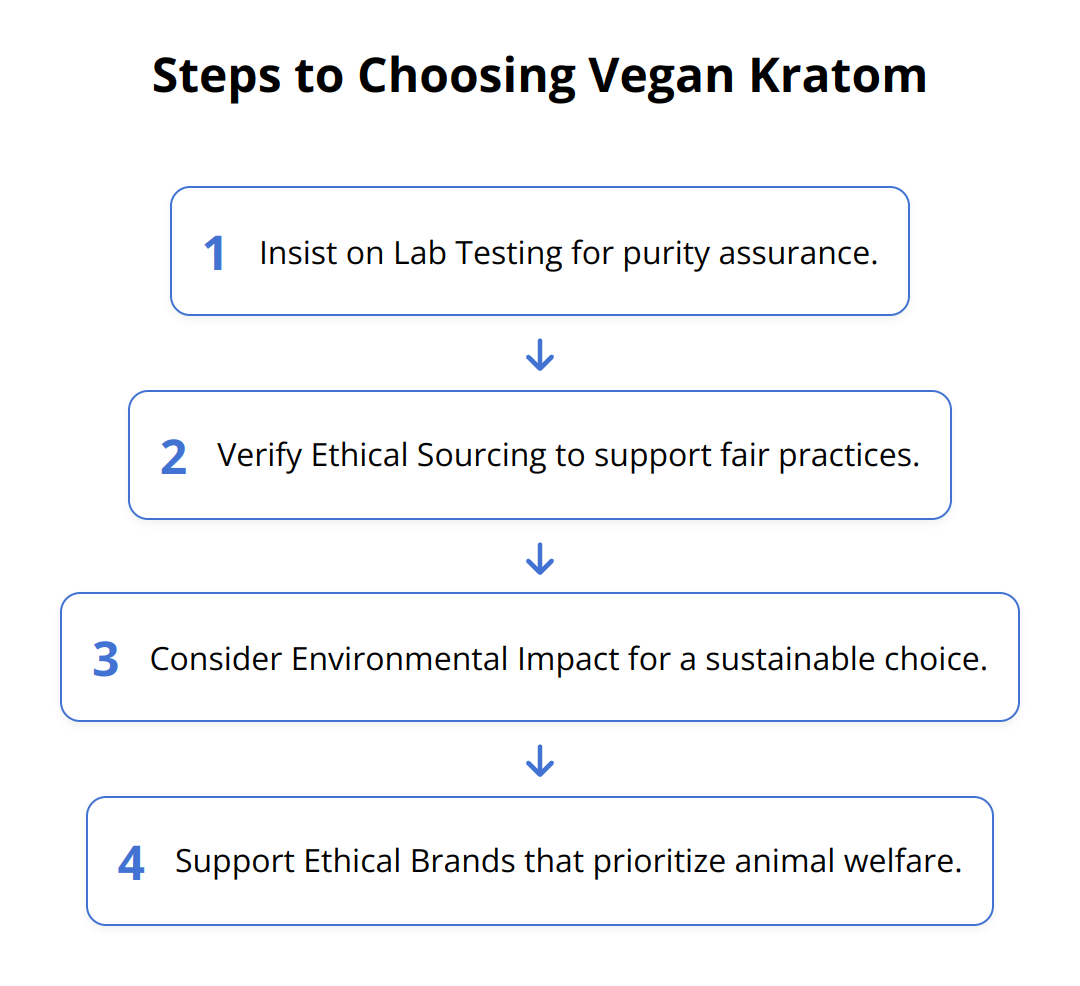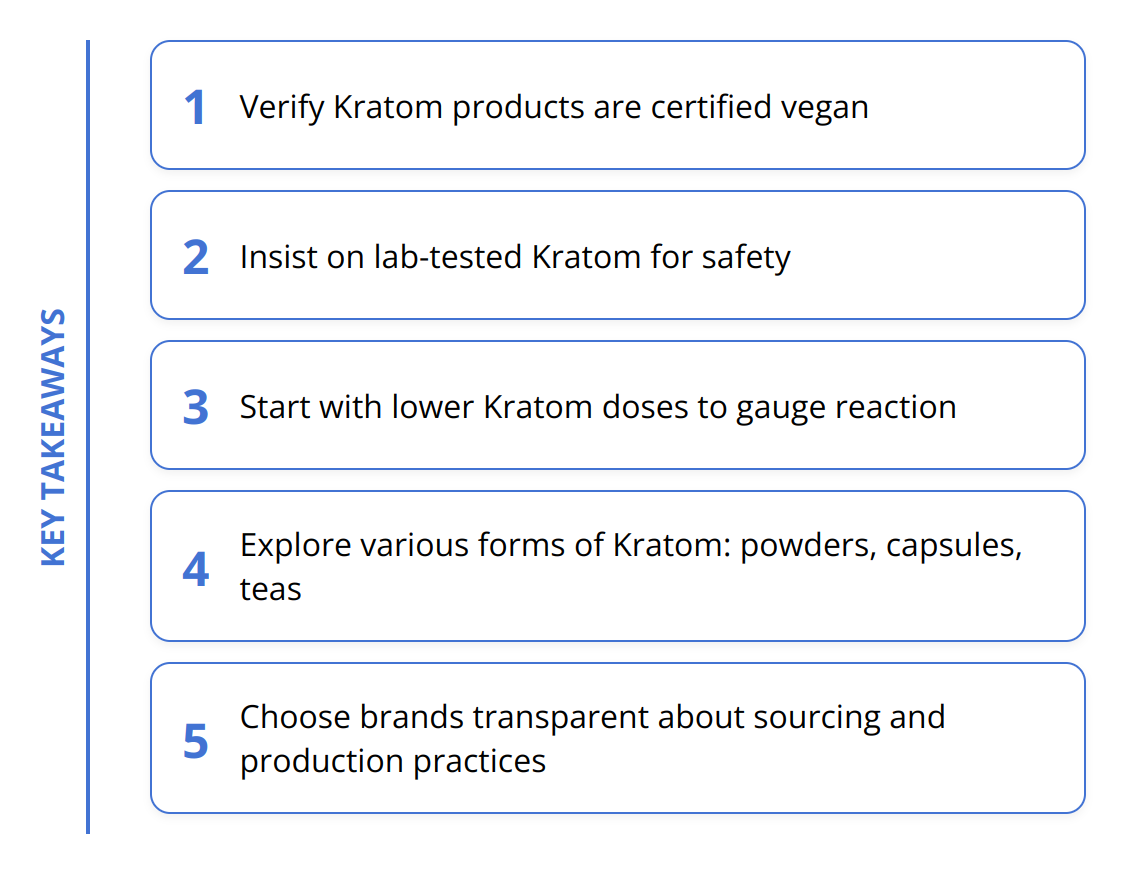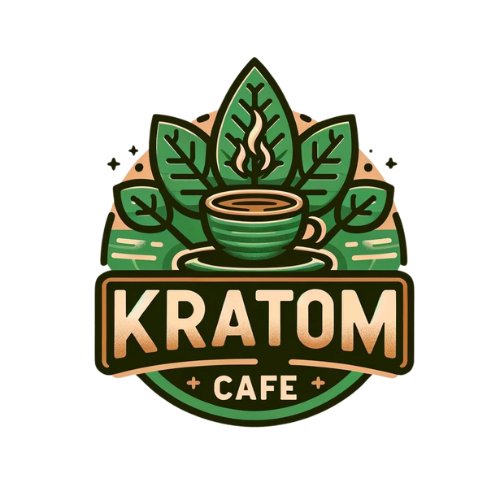Kratom, a natural substance with a rich history in traditional medicine, is experiencing a surge in mainstream popularity. As the wellness community grows more conscious, the demand for vegan kratom products is on the rise. We at Kratom Cafe are committed to providing information that aligns with both health and ethical choices. This blog post serves as a comprehensive guide to understanding the benefits and considerations of choosing vegan kratom products.
Understanding Kratom Origins
Kratom, a tropical tree indigenous to Southeast Asia, has a storied history. Traditionally used in local cultures for its medicinal properties, Kratom leaves were chewed or brewed into teas to combat fatigue, manage pain, and assist with a range of health conditions. The botanical name for Kratom, Mitragyna speciosa, speaks to its complex natural chemistry, which is the source of its effects.

Historically, Kratom’s use was largely localized to regions where it grew natively. Farmers and laborers relied on its properties to endure long hours of hard work under the sweltering sun. This practical, everyday use in traditional medicine laid the groundwork for what would become a global resurgence of interest.
The transition of Kratom from an obscure plant to a sought-after wellness supplement wasn’t immediate. However, with the rise of the internet and a growing interest in natural and alternative therapies, Kratom has moved into the mainstream spotlight. This shift is underscored by a marked increase in consumer demand, especially within the wellness community that values both health benefits and ethical sourcing.
As this interest grows, so does the conversation around vegan Kratom products. Here are a few practical insights for those considering integrating Kratom into their lifestyle:
-
Research Hard-to-Come-By Strains: Some strains, like White Elephant, are rare and might offer unique benefits. Knowing where your Kratom comes from and how it’s sourced is essential, especially for vegan consumers.
-
Look for Lab-Tested Products: Ensuring that the Kratom you purchase is free from contaminants like Salmonella or heavy metals is paramount.
-
Start with Lower Doses: Especially for new users, it’s wise to start with a smaller dose to gauge your body’s reaction.
-
Explore Different Forms: Kratom is available in powders, capsules, teas, and more. Each form offers different conveniences and experiences.

The rising tide of Kratom’s popularity has also shone a light on the importance of sustainability and ethical production practices. Consumers are increasingly seeking out vegan Kratom products that align with their lifestyle and values. This evolution is a testament to Kratom’s versatility and appeal across different demographics and needs.
For those looking to deepen their understanding of how to use Kratom for wellness, further reading is available: how to use Kratom for wellness.
Kratom’s emergence as a mainstream wellness supplement underscores a broader trend towards natural and holistic health solutions. As more people look to incorporate Kratom into their wellness routines, understanding its origins, applications, and the best practices for use becomes ever more important.
Vegan Kratom Insights
The wellness industry is evolving, and with it, the demand for vegan Kratom products is surging. This shift is not just about dietary preferences; it’s a comprehensive approach toward ethical consumerism and sustainability. Here, we explore what sets vegan Kratom products apart, the significance of ethical sourcing, and the varieties available for conscientious consumers.
Defining Vegan Kratom: Not all Kratom products meet vegan criteria. Vegan Kratom is devoid of any animal products or by-products, from cultivation to the final product. This includes avoiding fertilizers derived from animal products, ensuring that the harvesting and processing machinery is free from animal by-products, and using plant-based capsules for Kratom pills. The rigorous attention to detail ensures that these products align with vegan ethics.
Ethical Sourcing Matters: The journey of Kratom from tree to consumer should prioritize environmental sustainability and fair labor practices. Ethical sourcing ensures that farmers receive fair compensation, working conditions are safe, and cultivation practices minimize environmental impact. Ethically sourced Kratom also means transparency regarding the product’s origin and the avoidance of practices that harm the ecosystem where Kratom grows.
Available Vegan Kratom Forms: Consumers have a variety of product forms to choose from. They range from powders and capsules to teas, each with its advantages. Powders offer versatility but require careful measurement. Capsules and tablets provide convenience and ease of use, with some specifically designed to be vegan-friendly, utilizing plant-based capsules. Tea lovers can enjoy Kratom tea bags made from crushed leaves, offering a traditional consumption experience without compromising their vegan lifestyle.
For those looking to integrate Kratom into their vegan lifestyle, it’s crucial to conduct research and choose products that align with ethical values. Here are practical tips to ensure you’re making informed choices:
-
Verify if products are certified vegan.
-
Inquire about lab testing to ensure purity and safety.
-
Understand the sourcing practices of your chosen brand.
-
Opt for transparent brands that provide detailed product information.

By choosing vegan Kratom, you’re not just making a choice that benefits your health; you’re also supporting ethical business practices, environmental sustainability, and animal welfare. It’s a holistic approach that reflects a commitment to personal well-being and the health of our planet.
For further insights into choosing quality Kratom products, check out our post on choosing Kratom leaf powders.
Selecting vegan Kratom is more than a dietary choice; it’s a statement of values. As the popularity of Kratom grows, so does the importance of making choices that are good for both our bodies and the world around us.
Benefits of Vegan Kratom
Opting for vegan Kratom not only aligns with ethical lifestyle choices but also impacts health, wellness, and the environment positively. Here we explore practical reasons why choosing vegan Kratom is beneficial.
Environmental Impact and Sustainability
Choosing vegan Kratom significantly reduces environmental impact. Traditional farming practices can be harsh on land use and biodiversity. However, ethical sourcing for vegan Kratom promotes sustainable farming techniques, which lessen deforestation and soil degradation. These practices ensure the longevity of Kratom cultivation, securing its future availability.
-
Reduced Water Usage: Vegan kratom farming tends to use less water compared to conventional methods, contributing to water conservation.
-
Lower Carbon Footprint: By avoiding animal-based products, the overall carbon footprint associated with Kratom production is minimized.
Health and Wellness for Vegans
For vegans, health is often a priority, and choosing vegan Kratom can have direct benefits. Vegan Kratom products are free from animal by-products, reducing exposure to antibiotics and hormones often present in animal-derived ingredients. This aligns with a holistic health approach, focusing on clean and natural consumption.
-
Allergen-Free: Many vegan Kratom products are designed to be allergen-free, catering to those with specific dietary restrictions.
-
Purer Products: Vegan certification often requires rigorous testing, meaning vegan Kratom is likely to have undergone extensive checks for contaminants.
Aligning with Vegan Ethics
Choosing vegan Kratom goes beyond personal health, it’s about making an ethical choice. For many, it’s important that their consumption does not contribute to animal suffering or exploitation. Vegan Kratom ensures that every step of production, from harvesting to packaging, adheres to cruelty-free practices.
-
Support Ethical Brands: By choosing vegan Kratom, you’re supporting brands that prioritize animal welfare and ethical business practices.
-
Promote Sustainable Practices: Opting for vegan options encourages more brands to consider sustainable and ethical practices in their operations.
For those considering vegan Kratom, it’s pivotal to do your homework:
-
Insist on Lab Testing: Ensure the product is tested for purity.
-
Verify Ethical Sourcing: Choose brands that offer transparency about their sourcing and production practices.
-
Consider Environmental Impact: Opt for brands that implement sustainable farming practices.
For further reading on using Kratom for enhanced wellness, our detailed guide on Kratom for wellness offers valuable insights.
In summary, vegan Kratom is not just a product choice; it’s a health, ethical, and environmental stance. This holistic approach mirrors the growing global commitment to sustainability and animal welfare, ensuring that every purchase has a positive impact beyond personal benefit.

Final Thoughts
Navigating the world of wellness supplements can sometimes feel overwhelming. Yet, the rise of vegan Kratom products showcases a broader movement towards health-conscious, ethically driven choices. Our journey through understanding Kratom’s origins to exploring the benefits of opting for vegan Kratom highlights a core message: wellness, ethics, and sustainability can go hand in hand.

Vegan Kratom products, devoid of animal by-products and championing ethical sourcing, not only cater to the vegan community but also resonate with anyone looking to make mindful choices in their consumption habits. The growing popularity of these products within the wellness sphere is a testament to an ever-increasing demand for supplements that align with personal and global well-being values.
This transition towards vegan Kratom also underscores the significance of informed consumption. Being conscious of where our products come from, how they are made, and their impact on health and the environment, helps foster a more sustainable and ethical marketplace. As more consumers pivot towards these mindful choices, it propels the industry toward higher standards of quality and accountability.
We at Kratom Cafe are enthusiastic supporters of this movement. Our digital hub is designed to equip you with the knowledge and resources you need to make informed decisions about Kratom and its various forms, including vegan options. Whether you’re exploring Kratom for wellness, seeking alternatives for pain management, or simply curious about this versatile plant, we encourage you to consider products that reflect both your health needs and ethical values.
In a world where every choice can make a difference, opting for vegan Kratom is more than a personal health decision—it’s a step towards a more responsible and compassionate consumption model. Let’s make choices that not only benefit us but also respect the planet and all its inhabitants.
For more insights and guidance on finding the best Kratom strains, visit Kratom Cafe.
Together, we can navigate the abundant options in the wellness industry, armed with the knowledge to choose wisely and well.

